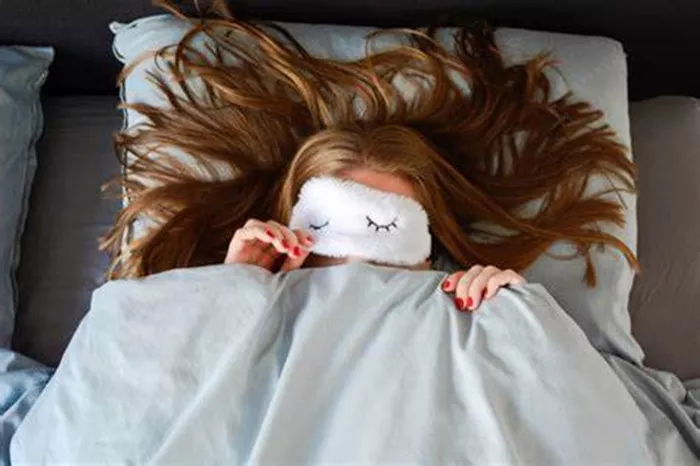Hair loss is a common concern that affects millions of people worldwide. While genetics, diet, and stress play significant roles in hair health, many people overlook the impact of nighttime habits on hair loss. The way you sleep, the products you use before bed, and even your pillowcase material can influence hair strength and shedding.
In this guide, we will explore the best practices to prevent hair loss while sleeping. From optimizing your sleep environment to adopting hair-friendly nighttime routines, these strategies can help you maintain a healthy scalp and reduce unnecessary hair fall.
Understanding the Connection Between Sleep and Hair Loss
Before diving into prevention methods, it’s essential to understand why sleep affects hair health. Hair follicles go through cycles of growth, rest, and shedding. Poor sleep disrupts these cycles by increasing stress hormones like cortisol, which can push hair into the shedding phase prematurely. Additionally, friction from tossing and turning, as well as the materials your hair comes into contact with at night, can weaken strands and lead to breakage.
Lack of deep, restorative sleep also impairs blood circulation to the scalp, reducing nutrient delivery to hair follicles. Over time, this can contribute to thinning hair. By addressing these factors, you can create a nighttime routine that supports hair retention and growth.
Choosing the Right Pillowcase for Hair Health
One of the simplest yet most effective ways to prevent hair loss while sleeping is by switching your pillowcase material. Traditional cotton pillowcases can create friction, causing hair to tangle and break. Instead, consider these alternatives:
- Silk or Satin Pillowcases – These materials reduce friction, allowing hair to glide smoothly as you move during sleep. They also help retain moisture, preventing dryness and breakage.
- Bamboo Pillowcases – Naturally hypoallergenic and moisture-wicking, bamboo fabric is gentle on hair and scalp while keeping you cool.
Using a soft, smooth pillowcase minimizes tugging and stress on hair follicles, reducing the risk of mechanical damage that leads to hair loss.
Nighttime Hair Care Routine to Minimize Shedding
How you treat your hair before bed plays a crucial role in preventing hair loss. Follow these steps to protect your strands overnight:
Gentle Detangling
Before sleeping, use a wide-tooth comb or a detangling brush to remove knots. Start from the ends and work your way up to avoid unnecessary pulling. Never brush wet hair aggressively, as it is more prone to breakage.
Moisturizing and Protective Treatments
Apply a lightweight hair oil (such as argan or jojoba oil) to the ends to prevent dryness. If you have a dry scalp, consider using an overnight scalp treatment with ingredients like rosemary oil, which has been shown to support hair growth.
Protective Hairstyles
Tying your hair too tightly in a ponytail or bun can cause traction alopecia, a form of hair loss caused by constant pulling. Instead, opt for loose braids, a low ponytail with a silk scrunchie, or simply leave your hair down if it doesn’t tangle easily.
Optimizing Sleep Position for Hair Health
Your sleeping posture can influence hair loss. Sleeping on your back is the best position to minimize friction and tension on the hair. However, if you’re a side or stomach sleeper, these tips can help:
- Use a Silk or Satin Bonnet – This keeps hair contained and reduces friction against the pillow.
- Switch Sides Occasionally – Consistently sleeping on one side can lead to more hair breakage on that side due to prolonged friction.
Managing Stress and Improving Sleep Quality
Stress is a major contributor to hair loss, and poor sleep exacerbates stress levels. To break this cycle, focus on improving sleep quality:
- Establish a Relaxing Bedtime Routine – Activities like reading, meditation, or light stretching can signal your body to wind down.
- Limit Screen Time Before Bed – Blue light from phones and laptops disrupts melatonin production, making it harder to fall asleep.
- Ensure a Dark, Cool Sleep Environment – Blackout curtains and a comfortable room temperature promote deeper sleep, which is essential for hair repair and growth.
Dietary and Lifestyle Factors That Support Hair Health
While nighttime habits are crucial, overall nutrition and lifestyle also play a role in preventing hair loss. Consider these adjustments:
- Eat a Balanced Diet – Protein, iron, zinc, and vitamins (especially biotin and vitamin D) are vital for hair strength. Include foods like eggs, leafy greens, nuts, and fatty fish.
- Stay Hydrated – Dehydration can make hair brittle and prone to breakage.
- Avoid Heavy Alcohol or Caffeine Before Bed – These can disrupt sleep cycles, indirectly affecting hair health.
When to Seek Professional Help
If you’ve implemented these strategies and still experience excessive hair loss, consult a dermatologist or trichologist. Underlying conditions like hormonal imbalances, thyroid disorders, or alopecia may require medical treatment.
Conclusion
Preventing hair loss while sleeping involves a combination of smart nighttime habits, proper hair care, and overall wellness. By choosing the right pillowcase, adopting protective hairstyles, managing stress, and maintaining a healthy diet, you can significantly reduce hair shedding and promote stronger, healthier hair.
Remember, consistency is key—small changes in your nightly routine can lead to long-term improvements in hair retention. Start implementing these tips today, and your hair will thank you in the mornings!
Related Topics:
- When Do Men Start Losing Hair? A Complete Guide
- What Should We Eat to Avoid Hair Fall?
- Can We Stop Hereditary Hair Loss? A Detailed Guide


